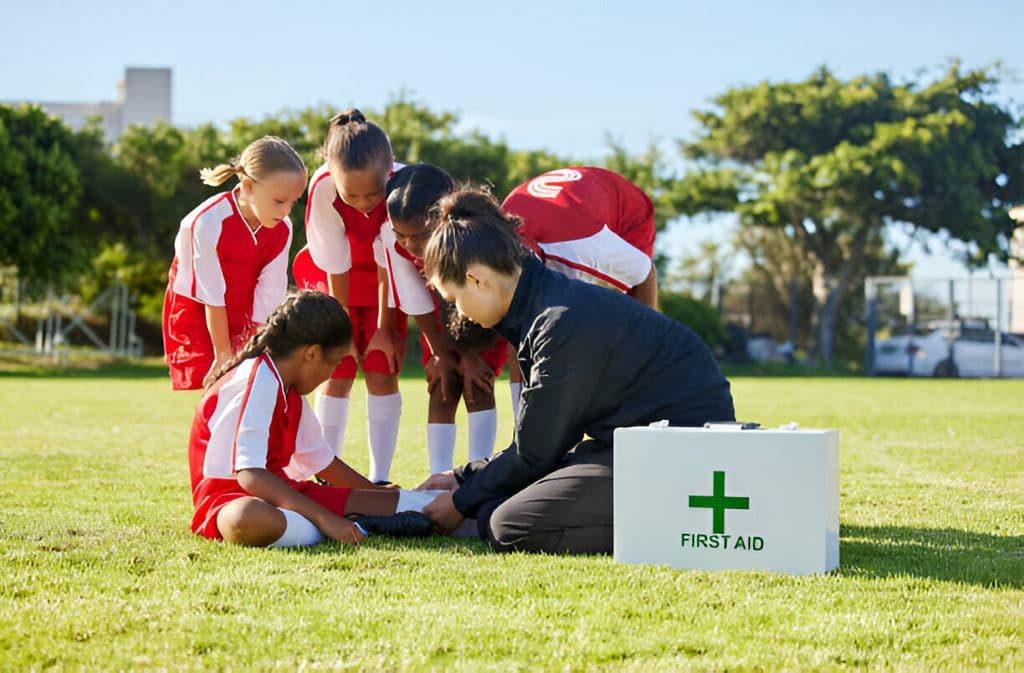Sports events are more than just games; they are showcases of athleticism, camaraderie, and community spirit. From local tournaments to international championships, the seamless coordination of every aspect is crucial to ensuring a memorable and enjoyable experience for participants and spectators alike.
In this dynamic and fast-paced environment, event planners must navigate through challenges while maintaining a sense of ease and professionalism. In this comprehensive guide, we’ll explore the strategies and tactics for effortlessly coordinating sports events, ensuring that every aspect of the event—from logistics to fan engagement—runs smoothly.
The Foundation: Planning and Preparation
Effortless execution begins long before the first athlete sets foot on the field. It starts with thorough planning and meticulous preparation. In this section, we’ll delve into the essential steps for laying the groundwork for a successful sports event.
Define Clear Objectives
Before embarking on the planning process, it’s crucial to define clear objectives for the event. Are you aiming to promote a particular sport, raise funds for a charitable cause, or enhance the fan experience?
Clearly articulating your goals will guide all subsequent decisions and ensure that every aspect of the event aligns with your overarching vision.

Allocate Resources Wisely
When it comes to event planning services, effective resource allocation is paramount to staying within budget and optimizing efficiency. Every aspect counts, from venue rental and equipment to staffing, marketing, and promotional materials.
Prioritize expenses according to their potential to enhance the event’s success, while also setting aside a buffer in the budget for unexpected costs.
Develop a Comprehensive Timeline
Creating a detailed timeline is essential for keeping the planning process on track. Identify key milestones, such as securing the venue, finalizing sponsorship deals, launching marketing campaigns, and coordinating with athletes and teams.
Assign deadlines to each task and regularly review progress to ensure that everything stays on schedule.
Secure Necessary Permits and Contracts
Don’t overlook the legal and logistical aspects of organizing a sports event. Obtain any necessary permits for the venue, ensure compliance with safety regulations, and secure contracts with vendors, suppliers, sponsors, and performers.
Addressing these details early on will help prevent headaches and delays down the line.
Conduct Market Research
Before diving into the planning process, conduct thorough market research to gain insights into the target audience, competitors, and trends in the sports industry.
Understanding the preferences and expectations of your audience will help you tailor the event to meet their needs and stand out from the competition.
Smooth Operations: Coordination and Communication
With the groundwork laid, the focus shifts to executing the event seamlessly. Effective coordination and communication among all stakeholders are essential for ensuring that everything runs smoothly on the day of the event.
- Prepare Contingency Plans: Anticipate potential challenges and develop contingency plans to address them effectively. Identify potential risks such as inclement weather, equipment malfunctions, or medical emergencies, and outline protocols for mitigating these risks. Having backup plans in place will enable organizers to respond swiftly and minimize disruptions.

- Establish a Clear Chain of Command: Clarify roles and responsibilities by establishing a clear chain of command. Designate a point person or team for each aspect of the event, such as logistics, marketing, volunteer coordination, and participant services.
This will streamline decision-making and prevent confusion during the event. - Foster Open Communication: Maintain open lines of communication among all stakeholders involved in the event, including staff, volunteers, vendors, sponsors, athletes, and attendees. Regular meetings, email updates, and communication tools such as Slack or Trello can help keep everyone informed and aligned.
- Leverage Technology: Take advantage of technology to streamline operations and enhance communication. Event management software can automate tasks such as registration, ticketing, and attendee tracking, reducing the administrative burden on organizers.
Social media platforms and mobile apps can be used to disseminate information and engage with participants and fans in real time. - Provide Comprehensive Training and Support: Offer comprehensive training programs and resources for all staff, volunteers, and contractors involved in the event, covering topics such as customer service, emergency response, conflict resolution, and cultural sensitivity.
Establish support systems, such as onsite supervisors, help desks, or emergency response teams, to provide immediate assistance and guidance to staff and attendees as needed.
Enhancing the Experience: Attention to Detail
Beyond logistical considerations, a truly successful sports event is characterized by the attention to detail and the overall experience it provides to participants and spectators alike.
- Create Immersive Fan Experiences: Engage fans and create memorable experiences beyond the main event. Incorporate interactive activities, fan zones, and opportunities for meet-and-greets with athletes to enhance the overall experience and foster a sense of community.
- Ensure Spectator Comfort and Convenience: Prioritize the comfort and convenience of spectators by providing ample seating, restroom facilities, concessions, and parking options. Implement crowd management strategies to maintain order and safety, ensuring that attendees can focus on enjoying the event without distractions.
- Support Athletes and Participants: Provide comprehensive support services for athletes and participants to ensure a positive experience. This may include arranging transportation, accommodations, practice facilities, and meals, as well as offering medical and wellness services to support their physical and mental well-being.

- Evaluate and Iterate: After the event concludes, take the time to evaluate its success and identify areas for improvement. Gather feedback from participants, spectators, sponsors, and staff, and analyze key metrics such as attendance, revenue, and media coverage.
Use this data to inform future planning and continuously refine the event experience.
Conclusion
Coordinating a sports event may seem like a daunting task, but with careful planning, strategic coordination, and attention to detail, it can be a rewarding and unforgettable experience for everyone involved. By laying a solid foundation, fostering open communication, and prioritizing the overall experience of participants and spectators, organizers can ensure that their events leave a lasting impression and inspire future generations of athletes and fans alike. With these strategies in mind, the next sports event can truly be a showcase of seamless coordination and effortless execution.










